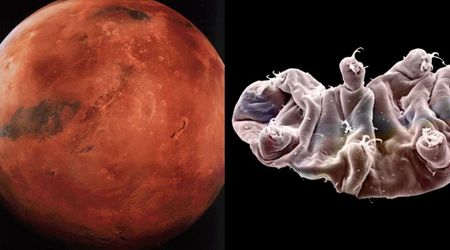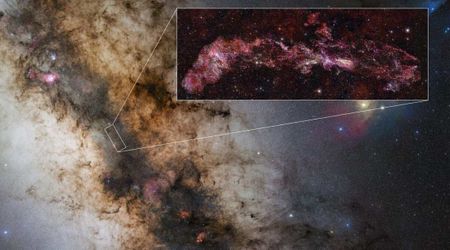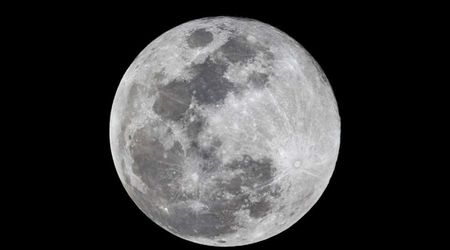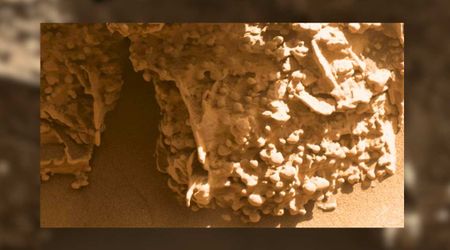Is buying a star legitimate?

With the holiday season on the horizon, gift guides are already weaving their way into our mailboxes, urging us to secure the perfect presents before the rush. Among the myriad of suggestions, one stands out for those captivated by the cosmos: naming a star after a loved one.
It's a thoughtful gesture, connecting our earthly bonds to the vast universe, but let’s pause for a moment – can you truly claim a star or another celestial object in someone's name? Let's delve into the official protocols and legalities surrounding the naming of these distant wonders.
Many commercial companies advertise their ability to name a star for you, for a fee, of course. For that price, they’ll send you a pretty, fancy certificate and a star chart showing the “precise location” of your star.
For many, this sounds like a fantastic idea for the astronomy/ space lover in their life. It’s a cool way of documenting that person in the night sky. It could also be in memorial of someone who has passed. It’s sentimental, cute, and leaves a mark on the universe.
But is it real? Legal?

The Official, Legal State of Naming Celestial Objects
The International Astronomical Union (IAU) since 1919 has striven to promote and safeguard the science of astronomy in all its aspects through international cooperation of professional astronomers. Part of its duties is standardizing the nomenclature (naming) of celestial objects among the international astronomical community. This allows professional and even amateur astronomers to communicate with one another and document their research on the universe in reliable, standard language.
While there are hundreds of stars (e.g. Polaris, Sirius, Betelgeuse) and other celestial objects (e.g. planets and moons) that have names for cultural reasons, the official “naming” of stars uses a string of numbers and letters known as a scientific designation. Astronomers often deal with hundreds, thousands, even millions of objects in their research.
These scientific designations facilitate locating, describing, and discussing it within the scientific community, in alphanumeric designations of an acronym plus either an index number or celestial position. This is why you are much more likely to see recent news listing stars with “names” like HR 7001 or 2MASS J18365633+3847012.
In general today, most of the “named” astronomical objects have traditional and cultural backgrounds often referring to mythology and/ or are suggested by the astronomer who found the object. Many of astronomy’s new discoveries receive a scientific designation as opposed to a name though there are exceptions such as the NameExoWorlds competition in which people submitted proposals for names of exoplanets and their stars.

Does the IAU sell star names, surface feature names, or real estate on other planets or moons in the Solar System?
Absolutely not. The IAU does not engage in any commercial activity of selling names or real estate related to celestial bodies.
Does the IAU endorse, associate with, recognize, approve, or actively collaborate with any commercial entities that claim to do so?
Definitely not. The IAU maintains a strict stance of not endorsing or associating with any commercial entities that make such claims.
Even if the site says the IAU does any of the above?
No, not at all. It's important to note that while many of these enterprises may claim association with the IAU, such claims are entirely false. If you come across any such misleading information, it's recommended to report them to the IAU for falsely claiming affiliation.
Can these entities legally sell you ownership or naming rights to celestial bodies?
According to the United Nations’ Outer Space Treaty, “Outer space, including the moon and other celestial bodies, shall be free for exploration and use by all States without discrimination … and there shall be free access to all areas of celestial bodies.” It also prevents any country from claiming sovereignty over outer space or any celestial body. While free has multiple meanings here, financial implications are also included since if someone owned celestial bodies, it would restrict access and use from other entities. The IAU sums it up well on its page regarding this topic:
“Like many of the best things in life, the beauty of the night sky is not for sale — it is free for all to enjoy. Further, the night sky belongs to everyone. Those claiming to sell parts of it implicitly claim to own it….”
So Can You Buy A Star Or Name One?
Very simply, this offering is a novelty. The only place the name for that star changes is in the company’s records, but there’s nothing keeping them from taking money from someone else to name that star so even that change is dubious.
You can’t walk into a planetarium or observatory and ask to see “Uncle Joe’s star” if you “bought” the star on some company’s site because they didn’t actually and can’t actually change its official name on the official star catalog.
You can pay these companies and get a pretty certificate and their promise that the star is now labeled with your chosen name in their records, but it’s not actually changing anything, even potentially in their system.
For some, it’s more about the sentimental value that this implies either in a romantic, sentimental, or commemorative way, but that’s their choice to make even though it doesn’t change anything in an official or legal sense.

What Else Can You Do For The Astronomy Lover in Your Life?
There are many ways to inspire a love for the cosmos for someone special or in remembrance of someone special.
Consider getting them a space-themed gift. There are many books, movies, documentaries, and more to interest the astronomy or astronaut fan in your life. Or look into getting them something to view the night sky with such as binoculars or stargazing laser pointers.
When thinking about fostering a love for astronomy in someone, it's essential to provide them with authentic experiences that connect them to the vast universe beyond our planet. One effective way to achieve this is by engaging them with real individuals who share a passion for astronomy in your local community. These experts can offer insights, stories, and firsthand knowledge that books or online resources might not capture.
A visit to a planetarium can be a transformative experience. Here, they can witness the splendor of the night sky, learn about constellations, and get a closer look at celestial bodies. Similarly, a trip to a museum that has exhibits on space and astronomy can provide them with a broader understanding of the universe's history and the evolution of celestial study.
Observatories offer another fantastic opportunity. These places are equipped with powerful telescopes that allow visitors to gaze at distant stars, planets, and galaxies, making the vastness of space feel a tad bit closer.
If they show a keen interest, consider gifting them a membership to a planetarium, museum, or observatory. A membership not only supports these institutions but also allows the individual to return multiple times, diving deeper into their astronomical journey with each visit.
Additionally, enrolling them in an astronomy class or camp can be beneficial. Such programs are designed to educate and inspire, often providing hands-on experiences, like telescope viewing sessions or building model rockets. It's an excellent way for them to meet like-minded peers and learn from experts in the field, further fueling their passion for the stars.
You can also donate to these institutions in their name, potentially even naming a part of the building or having their name permanently placed on the property such as in a brick. Then, the money would go into spreading the cosmos to the community while also still fulfilling sentimental, romantic, or commemorative desires of putting their name among the stars.









